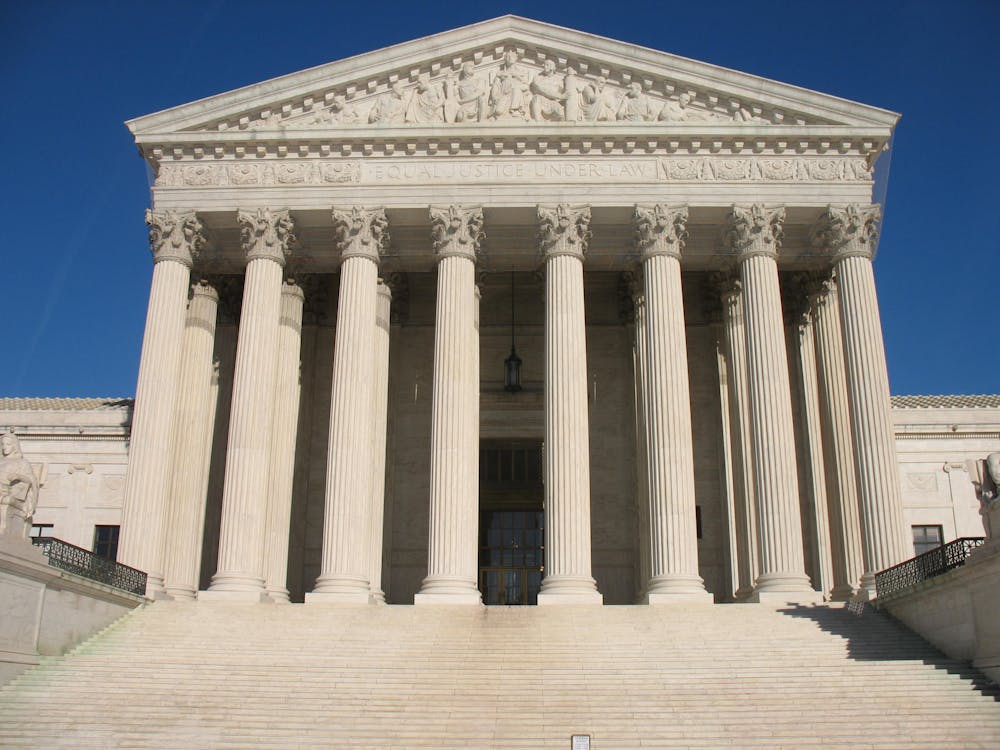By Nicole Trinkl
Staff Writer
The question of who is responsible for the content we see online, either the user or the platform, is being raised as the Supreme Court reexamines Section 230 of the 1996 Communications Decency Act in two cases: Gonzales v. Google LLC and Twitter Inc. v. Taamneh. Section 230 focuses on big tech companies' information distribution practices and policies.
Under Title 47 of the United States Code, Section 230 states, "No provider or user of an interactive computer service shall be treated as the publisher or speaker of any information provided by another information content provider."
In other words, if a person posts something that may be deemed a violation of a platform's policies, whether it be offensive, defamatory, violent or a misuse of power, the platform containing that post is not responsible for what that person posted; instead, the individual who posted it is. In essence, platforms do not have the same regulations as other industries when publishing content: Online platforms are not responsible for what their users post and have complete control over what information they want to keep or take down. This law does not hold platforms accountable for what information they keep on their platforms and protects big tech companies from being sued.
Several lawsuits against Google and Twitter have prompted calls for the reform of Section 230.
According to the New York Times, in Gonzales v. Google LLC, plaintiffs representing Nohemi González, a 23-year-old senior design major at California State University Long Beach who died as a result of terrorist attacks by ISIS while in Paris in 2015, are suing Google, the owner of YouTube. They accuse Google of spreading content that radicalized users into becoming terrorists by disseminating material promoting Islamic State propaganda leading to Gonzalez's death.
Google replied to the Gonzalez family's claims by saying that their arguments were based on "threadbare assertions" and "speculation."
According to The Wall Street Journal, along with Google, Twitter is being sued by the family members of Nawras Alassaf, who was killed in an Islamist attack in Istanbul in 2017. Similar to the case with Google, the family is trying to prove that Twitter had a role in aiding The Islamic State, resulting in Alassaf's death.
The Cornell University Law Institute explained that these cases are trying to determine whether Twitter and Google are assisting terrorists by not preventing them from using their platforms. The plaintiffs of these cases intend to try to prove that these tech companies under the Justice Against Sponsors of Terrorism Act can be held liable for aiding terrorism even though their services were not directly connected with the actual act of killing both victims.
During both Google and Twitter's court cases, all Supreme Court Justices expressed various arguments and opinions. Among them was Supreme Court Justice Ketanji Brown Jackson, who questioned Lisa S. Blatt, an attorney representing Google, on what role platform’s recommendations had in spreading information like that of the Islamic State.
Justice Jackson said, “[Section 230] seems, to me, to [have] a very narrow scope of immunity that doesn't cover whether or not you are making recommendations or promoting [content].”
Blatt responded to this inquiry by explaining how recommendations and algorithms function.
Search engines “are taking user information, targeting recommendations in the sense of saying, ‘We think you would be interested in the first content as opposed to the content on 1,000,692 sections,’” Blatt said.
Not only are these court cases playing a significant role in the pursuit of the reform of Section 230, but, as Bloomberg has reported, political extremes are also playing a significant role in the Democrats and Republicans' urgency in reforming Section 230. Democrats believe Section 230 encourages the spread of offensive information, political interference and misinformation. Republicans, on the other hand, believe Section 230 promotes the removal of opinions online, whether it be political or not.
The removal of Section 230 could result in a variety of outcomes. According to PBS, one outcome is the removal of free speech on the Internet.
“The primary thing we do on the Internet is we talk to each other… And a lot of those conversations are enabled by Section 230, which says that whoever's allowing us to talk to each other isn't liable for our conversations,” said Eric Goldman, a professor of Internet Law at Santa Clara University. "The Supreme Court could easily disturb or eliminate that basic proposition and say that the people allowing us to talk to each other are liable for those conversations."
According to USA Today, the final decision in Gonzales v. Google LLC will come in June.







